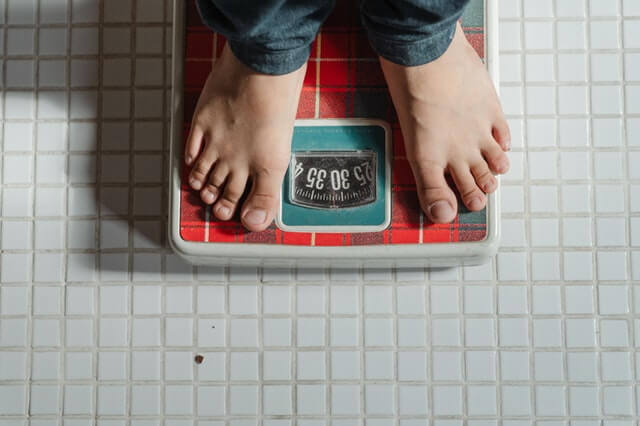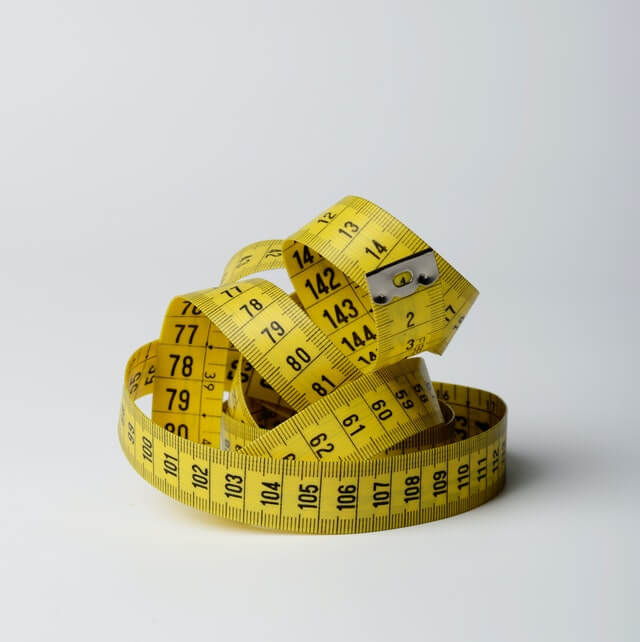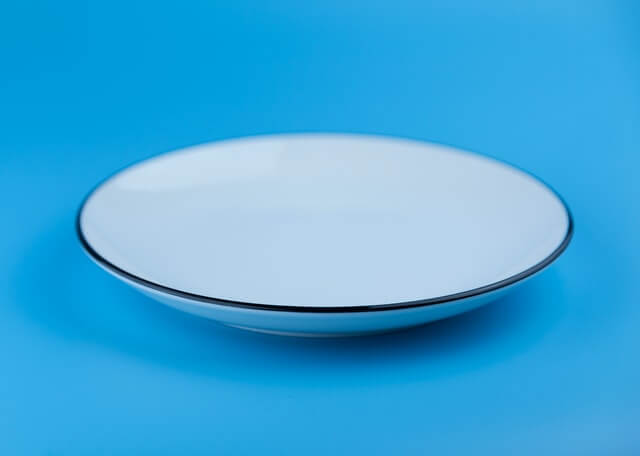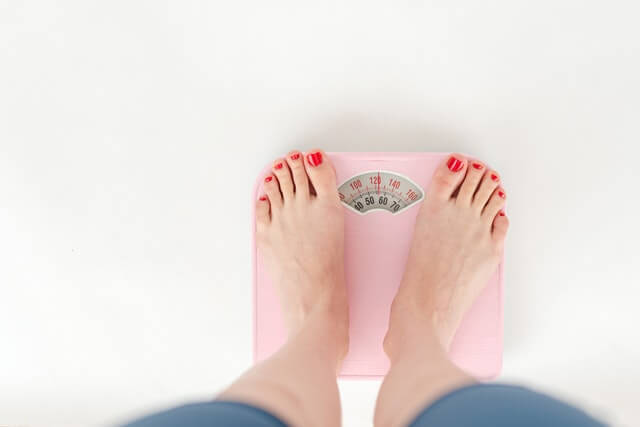This post may contain affiliate links. For more info, please read our full disclosure here
You’ve started a new weight loss program/diet. You saw good results at the beginning. The scale was moving, and you were happy.
But for some unknown reason, everything seems to have come to a stop. No matter what you do, you just can’t get the scale to keep going down.
This is called a weight loss plateau, and it can be a really frustrating, demotivating, or just downright annoying thing to experience on your weight loss journey.
Weight loss plateaus are really common, and they happen to pretty much almost everyone trying to lose weight at one point or the other.
They may occur for a variety of different reasons. But the good news is, with the right steps in place, you can easily overcome them, and get the scale moving again.
In this post, you’ll discover just why your weight loss could be stalling, and exactly what you need to do to nudge the scale in the right direction.
Let’s get into it.
Weight Loss Plateaus – Why They Occur

The first step in fixing any problem, is identifying why it happened in the first place.
Once you know the cause, then you can easily take the necessary actions to fix things, and possibly prevent it from occurring again in the future.
When it comes to weight loss plateaus, they may happen for a large number of reasons.
It’s important to know that two people can be hitting a weight loss stall for two completely different reasons. That’s why it’s good to first identify the reason why you could be stalling.
There are several common reasons why people hit a weight loss stall. We’ll be discussing 5 of them here today. They are;
- Slower metabolism as you lose weight
- Eating too much (unknowingly)
- Eating too little/starvation
- Excessive stress
- Following the wrong metrics
1) Slower Metabolism As You Lose Weight

It’s no news that our metabolism plays a very important role is whether or not we lose weight, and how efficient that process is.
But what exactly happens to our metabolism as we begin to lose weight? Let me try to explain.
I’ll use something called the basal metabolic rate (BMR), which is the rate at which your body burns calories carrying out basic bodily functions.
When you weigh more, there’s technically “more” of you to maintain, so your body uses up more energy to keep things going.
As you begin to lose weight and weigh less, your body requires a little less energy to keep things going, since there’s technically “less” of you to maintain. This may cause your metabolism to slow down.
The good news is, this situation isn’t necessarily unavoidable, as there are a number of things you can do to keep your metabolism up as you lose weight. Keep reading to find out.
Also See: 10 Simple Tips To Lose Weight Faster And Easier
2) Eating Too Much (Unknowingly)

This is also known as calorie creep, or carb creep (if you’re on a low carb diet). It may happen for a number of reasons, usually unknowingly.
As you begin to shed pounds over time and see results, you may begin to become gradually less cautions about what goes into your plate.
It can happen in the form of a lack of portion control, snacking way too much, or eating more and more unhealthy foods over time.
Regardless of how it occurs, it usually leads to us eating more than we actually need to. And most times, it happens so slowly that we don’t even recognize it.
Eating more than we need, albeit unknowingly, can put a dent in our weight loss efforts, and potentially lead to a weight loss plateau.
3) Eating Too Little

Eating too much isn’t the only thing that can harm your weight loss efforts. Sometimes, not eating enough can prevent the scale from moving too.
You’ve probably heard the general weight loss rule. Eating less calories than you burn will lead to weight loss, and eating more than you burn will lead to weight gain.
Generally, it is recommended to maintain a deficit of around 500 calories for healthy weight loss.
You see, our bodies are one smart bunch. When you eat way less than your body requires, it goes into something we like to call “starvation mode”.
This is when your body intentionally locks away its fat stores, in order to prevent you from losing too much fat too quickly.
It also lowers its metabolic rate in response, making proper weight loss even more difficult. All of this coupled together, can lead to a weight loss plateau.
So just like eating way too much, eating way too little can also put a dent on your weight loss efforts.
4) You’re Following The Wrong Metrics

Humans love the scale. For a lot of people, it’s one of the first things they hop on once they get out of bed.
While the scale is pretty good at telling you your total weight (bones, muscles, fat, etc.), it is not the most accurate representation of weight loss.
Let me give an example. Let’s say you’ve been following a fitness program that involves a reasonable amount of strength training.
This means while you lose fat, you’ll also gain muscle. While you may actually be progressing, your scale might not be reporting that progress effectively.
If you’re someone who relies solely on the scale as a measure of progress, this may leave you feeling down.
Now, I’m not necessarily saying you should toss your scale out the window just yet.
But it is important to know that the scale won’t always give you the most accurate representation of progress.
Read on to find out other possible metrics you can use to track your progress.
5) You’re Super-Duper Stressed

When it comes to reasons you could be hitting a weight loss plateau, one commonly overlooked issue, is stress.
And trust me when I say I get it. For a lot of people, stress is an unavoidable part of their life.
It could be from school, our jobs, kids, or just from the general state of things (considering everything the world has been through over the past 2 years).
When we’re stressed, our body releases more of a hormone called cortisol. You’ve probably heard people refer to it as the “stress hormone”.
Elevated levels of cortisol, can lead to a number of things, such as reduced metabolism, and increased cravings. Both of which can potentially diminish your efforts.
On top of that, people tend to make poorer food choices in general when stressed, and also indulge in things like overeating or emotional/stress eating.
All of these things can put a serious dent on our efforts, and potentially lead to a weight loss plateau.
While I understand that stress in a lot of cases is pretty much unavoidable, there are still things we can do to manage it, or reduce its effect. Read on to find out how.
How To Break Through A Weight Loss Plateau
It is worth noting that these tips listed above are not all the reasons people encounter weight loss plateaus. Just some of the more common ones.
But now that we have a better idea of the things that could be causing our weight loss to stall, let us discuss what to do to overcome that stall.
Here are 7 proven and useful tips that could help you overcome a weight loss plateau.
1) Re-Evaluate Your Caloric Needs

Like I said earlier, your body’s caloric requirements tend to change as you progress on your weight loss journey. If you notice you’ve hit a weight loss plateau, then it may be time to reassess your caloric needs.
Please note that this doesn’t necessarily mean eating less or starving. Not at all.
Re-evaluating your caloric needs involves determining the optimum amount of calories you need to eat at your current level, in order for healthy weight loss to continue.
You want to still be meeting your body’s requirements, while maintaining a good calorie deficit that supports healthy weight loss.
It may involve caloric redistribution among the major food groups. For example, less carbs, and more protein, and so on.
It doesn’t involve putting less on your plate and starving yourself. As we’ve discussed earlier, starvation only leads to more problems down the line.
So re-evaluating your caloric needs as you progress, can help you ensure you’re getting exactly what you need. And also potentially help you scale through a weight loss plateau.
2) Don’t Forget Exercise

The benefits of regular exercise are really hard to ignore.
Sure, losing weight starts with a good diet. But proper, consistent exercise is the icing on the cake that makes everything work a lot better.
And when it comes to weight loss plateaus, exercise can prove pretty useful.
Firstly, exercise can help you burn those extra calories needed to create the deficit required for weight loss.
On top of that, regular exercise can help prevent your metabolic rate from slowing down as you shed pounds. Meaning your metabolism still stays up even though you’re losing weight.
So all in all, regular exercise can serve as a pretty useful tool is breaking through a weight loss plateau.
3) Build Muscle

While this can pretty much fall into the category of exercise, I still feel it deserves its very own shout-out.
One good thing to know, is that muscle is more metabolically active than fat.
Put in simple terms, muscle requires more calories to maintain itself than fat does. Meaning the amount of calories you burn at rest (BMR) goes up if you have more muscle.
Things like high intensity interval training (HIIT) and strength training can be useful when it comes to building muscle.
Also, eating sufficient protein is important for good muscle growth. Protein is also good for boosting metabolism, which is great for your weight loss efforts as well.
4) Keep Track Of Your Food Intake

One of the common reasons people face weight loss plateaus, is due to overeating.
Like I said earlier, this may be in the form of excessive snacking, lack of portion control or eating more and more unhealthy foods over time.
A good way to combat this, is by keeping track of what you eat. This could be with the help of a food journal, or even a meal-tracking app.
By keeping track of what you eat, you can easily notice when, and how calories creep back in, and put a stop to it when they do.
Tracking your food intake can also help you stick to your recommended macro ratios more easily, since you’ll better know the nutritional content of what you’re eating.
5) Give Intermittent Fasting A Shot

If your weight loss has stalled, one thing you could try, to help push things in the right direction, is intermittent fasting.
Basically, it involves eating within a time window, and fasting for the remaining hours of the day.
One of the most popular methods of Intermittent fasting (IF) is known as 16:8. And as you must’ve guessed, it involves eating during an 8-hour window, and fasting for the remaining 16 hours.
Intermittent fasting, when done right, offers a number of interesting benefits, like weight loss, blood sugar control, improved heart health, and so on.
For someone experiencing a weight loss plateau, intermittent fasting could serve as a useful tool to help get the scale moving again.
If you’d like to give it a try, check out our complete beginner’s guide to Intermittent fasting, which also includes a sample 7-day meal plan.
6) Reduce Stress

For a lot of us, dealing with stress is pretty much something we do every day. And in some cases, it’s pretty much unavoidable.
However, there are a couple of things we could do to reduce or manage the stress, and possibly counteract its negative effects.
For example, regular exercise, even for just a couple of minutes per day, can help reduce stress, and improve the quality of sleep later on at night.
Speaking of sleep, trying your best to get enough snooze time each night is also pretty important.
Also, simple activities like yoga, meditation, or just deep breathing exercises can also potentially help reduce stress as well.
7) Focus On The Right Metrics

Last but certainly not least, you want to be focusing on the right metrics.
Like I said earlier, while the scale is a pretty good weight measuring device, it doesn’t always present the whole picture.
A situation where someone loses fat while gaining muscle, might not show up on the scale, even though it is technically good progress.
Following other metrics, such as lean body mass, or waist circumference, can give you a more accurate representation of what exactly is going on.
Summing It All Up
Certainly, no one likes experiencing a weight loss plateau. But unfortunately, a lot of people tend to encounter it at one point or the other in their journey.
If you encounter a weight loss plateau, you don’t need to panic. By
- Understanding the common reasons why it happens, and
- Taking the necessary steps to avoid/overcome them,
You can easily break through your weight loss plateau and get the scale moving again. With the right steps and perseverance, you’ll certainly achieve your goal.
